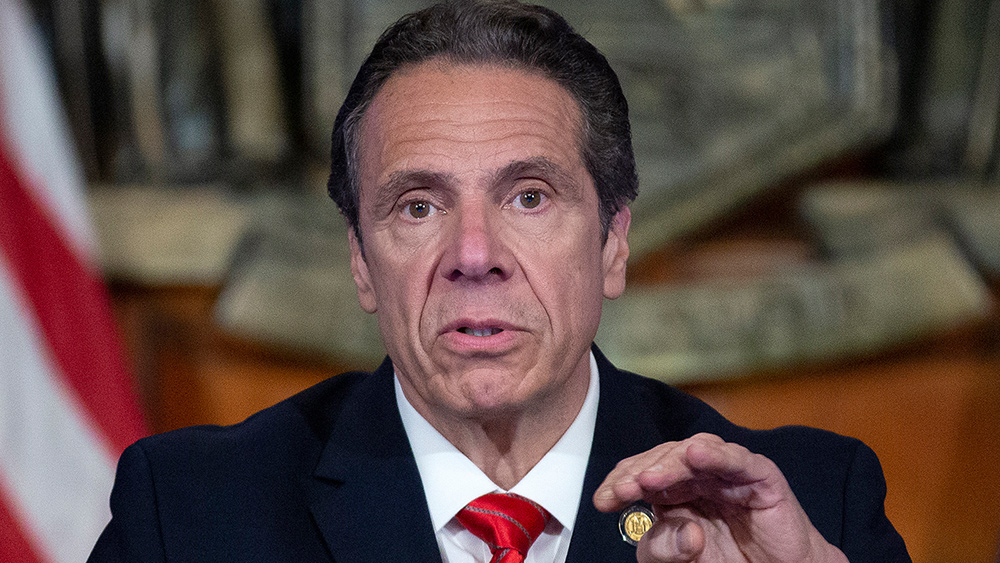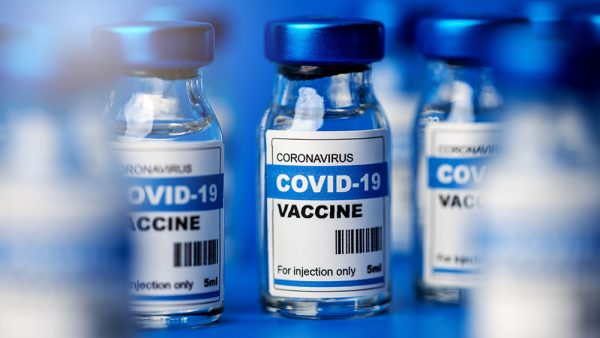NIH genetic counselor caught on hidden camera advising researchers on how to bypass DOGE oversight
By willowt // 2025-04-05
Tweet
Share
Copy

- NIH genetic counselor James Welch was caught on hidden camera advising researchers to bypass Department of Government Efficiency (DOGE) rules — such as replacing "race" with "ancestry" in studies — to avoid scrutiny.
- Welch admitted manipulating study language (e.g., cortisol research in Black and White women) and highlighted NIH’s lax oversight of its own internal programs versus external grants.
- Welch made disturbing statements about stockpiling firearms and "worst-case scenarios," prompting concerns about employee mental health and institutional safety.
- NIH issued a broad statement about aligning research with agency priorities but did not directly address Welch’s actions or systemic accountability gaps.
- The case underscores risks to government transparency and efficiency under DOGE reforms, emphasizing the need for stronger safeguards against misconduct in federally funded science.
Advising researchers to bypass DOGE regulations
James Welch, a genetic counselor at the National Institute of Diabetes and Digestive and Kidney Diseases (NIDDK), was recorded advising an undercover journalist on how NIH principal investigators could modify their language to avoid scrutiny from DOGE. “I had to go and look at what was leaked as far as the banned words… and figure out what to suggest and choose,” Welch admitted. In the footage, Welch detailed how he actively coached a researcher to alter the language in a study on cortisol levels in Black and White women to evade scrutiny. “Just make it not the primary objective, make it a secondary objective, and change the word ‘race’ to ‘ancestry,’” Welch instructed. This manipulation is particularly concerning given the strict oversight and ethical standards expected in government-funded research. Welch also highlighted the disparity in oversight between NIH’s intramural and extramural research programs. “We can do it [microdialysis] if we have the money,” he stated, emphasizing the power NIH insiders wield over approving their own research.Disturbing remarks about violence
Welch’s remarks extended far beyond procedural advice. In a chilling exchange, he made troubling comments about purchasing firearms and potential retaliation against individuals at the NIH. “My mom told me today not to shoot anybody because I’ve been buying guns,” Welch told the undercover journalist. When pressed about why he was purchasing firearms, Welch responded, “Just thinking about worst-case scenarios and being like, well, why not be prepared?” These statements have raised serious concerns about the mental health and stability of NIH employees, particularly those in positions of influence over critical research funding.NIH response and government action
In response to the footage, the NIH issued a statement to O’Keefe Media Group. “NIH is taking action to terminate research funding that is not aligned with NIH and HHS priorities,” the agency said. “We remain dedicated to restoring our agency to its tradition of upholding gold-standard, evidence-based science. As we begin to Make America Healthy Again, it’s important to prioritize research that directly affects the health of Americans. We will leave no stone unturned in identifying the root causes of the chronic disease epidemic as part of our mission to Make America Healthy Again.” The statement, while broad, does not specifically address Welch’s actions or the broader systemic issues exposed by the undercover investigation.Context and implications
The revelations come at a critical time when government efficiency and transparency are under intense scrutiny. The Department of Government Efficiency (DOGE), established by President's Executive Order on January 20, 2025, aims to modernize federal technology and software to maximize governmental efficiency and productivity. However, the practices exposed by Welch suggest that some officials are actively working to undermine these efforts. DOGE was created to ensure that government operations are efficient and effective, yet Welch’s actions highlight a dangerous trend of circumventing these vital reforms. The manipulation of language to avoid scrutiny not only compromises the integrity of NIH research but also erodes public trust in government-funded science. Moreover, Welch’s violent rhetoric is a red flag that should not be ignored. The NIH and other government agencies must take immediate and comprehensive action to address the mental health and stability of their employees, especially those in positions of power and influence.Conclusion
The hidden camera footage of James Welch provides a stark reminder of the ongoing challenges in government oversight and the potential for corruption and misconduct within federal agencies. As the NIH and other departments work to implement the DOGE agenda, it is crucial that they prioritize transparency, ethical conduct and the well-being of their employees. The American public deserves nothing less than a government that operates with the highest standards of integrity and accountability. For more information and to view the footage, visit the O’Keefe Media Group’s website. Sources include: YourNews.com OMG.com WhiteHouse.govTweet
Share
Copy
Tagged Under:
treason corruption twisted research government waste conspiracy big government rigged insanity science fraud NIH HHS resist traitors lunatics badscience science clowns science deception O'Keefe Media Group
You Might Also Like
U.S. moves to block Chinese control of Panama Canal, citing national security threat
By Cassie B. // Share
Enigmatic “Gate of the Gods” in Peru revives debate over lost ancient civilization
By Willow Tohi // Share
CRISPR revives dire wolves, igniting de-extinction debate
By Willow Tohi // Share
Recent News
Justice Department to enforce Trump’s ban on gender transition procedures for minors
By lauraharris // Share











